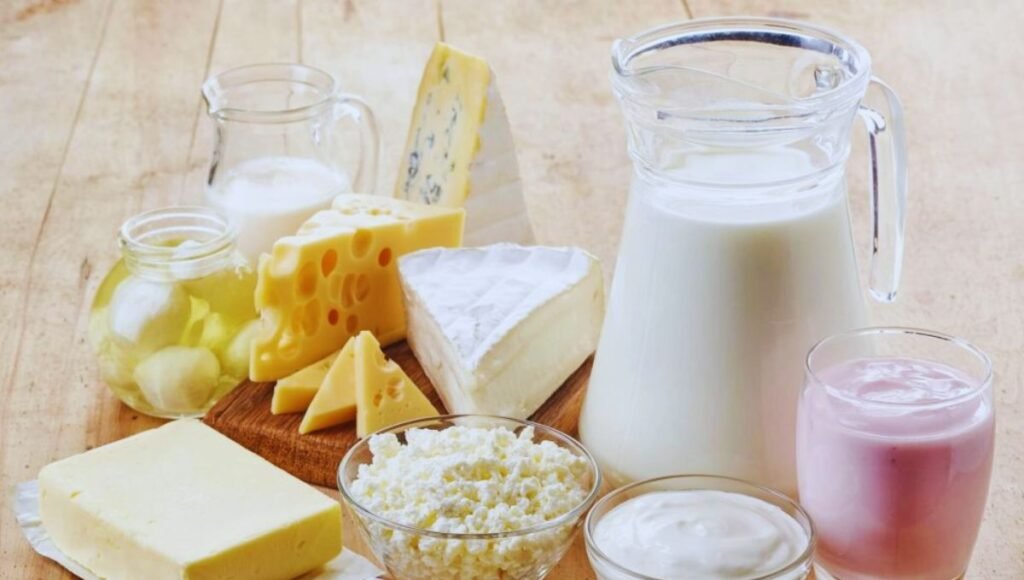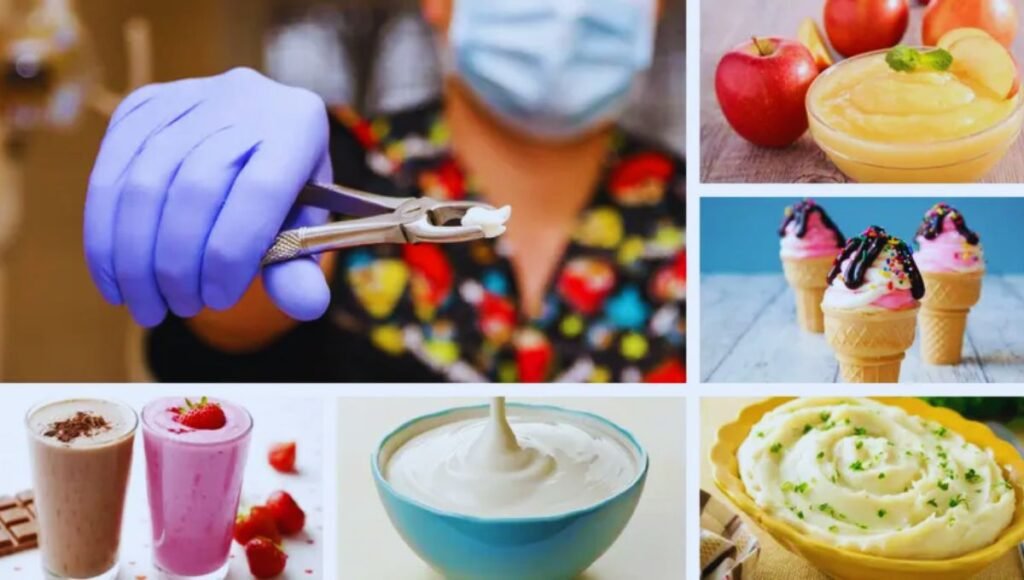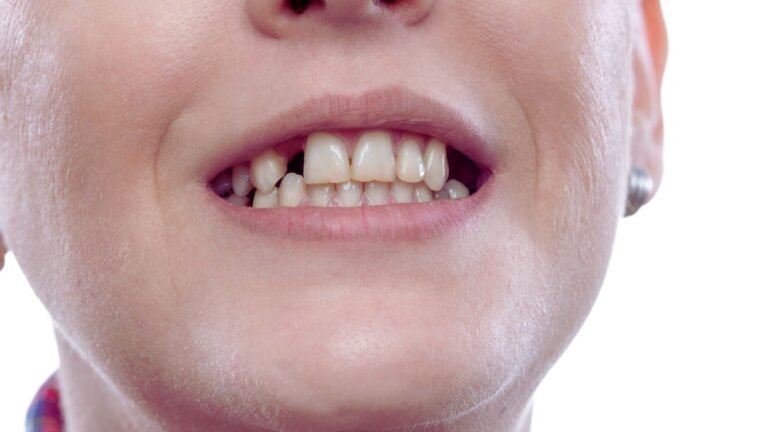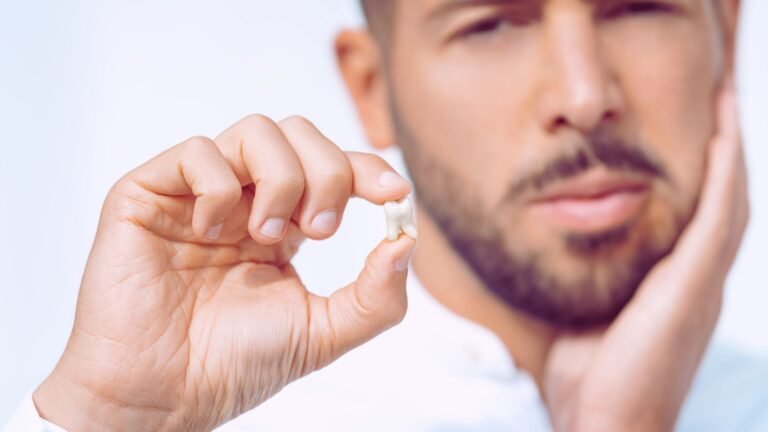Can I Eat Dairy After Tooth Extraction?
You’ve just had a tooth extracted and are wondering if it’s safe to rely on dairy products to aid your recovery. While dairy is rich in proteins and calcium that promote healing, it’s important to take into account your body’s tolerance and the type of dairy you choose. Soft options like yogurt and cottage cheese are generally safe bets, but what about other types of dairy? And how do you navigate this if you’re lactose intolerant or have a dairy allergy? Before you reach for that glass of milk or slice of cheese, let’s explore how to incorporate dairy into your diet without compromising your recovery.
Understanding Tooth Extraction Recovery
Properly managing your recovery after a tooth extraction is essential for healing and avoiding complications. It’s critical you understand the dynamics of the healing process and implement effective pain management strategies to foster a smooth recovery.
Initially, the healing process begins with the formation of a blood clot at the extraction site. It’s crucial to maintain this clot as it acts as a protective layer over the underlying bone and nerves and assists in the development of new tissue. Disturbing the clot can lead to complications such as dry socket, a painful condition that can significantly delay healing.
For pain management, your dentist will likely recommend over-the-counter pain relievers such as ibuprofen or acetaminophen. It’s important to follow the prescribed dosage and timing to effectively manage pain and minimize inflammation. Avoiding activities that could exert pressure on the extraction site, like sucking on straws or spitting forcefully, also plays a key role in managing pain and protecting the clot.
Benefits of Dairy for Healing

Dairy often plays an important role in post-extraction healing due to its high protein and calcium content, which can aid in tissue regeneration and bone health. When you’re recovering from a tooth extraction, your body needs all the support it can get to heal effectively, and incorporating dairy into your diet can provide numerous nutritional benefits essential for this process.
The protein in dairy products isn’t just for building muscle; it’s vital for the repair and regrowth of tissues damaged during a tooth extraction. Protein acts as a building block for new tissue, speeding up the healing process and helping to prevent complications.
Additionally, the calcium found in dairy is essential to bone health. After an extraction, your jawbone needs to recover and potentially fill in where the tooth once was, and calcium is a key component of that bone regrowth.
Including dairy in your diet post-extraction can enhance your recovery. Dairy benefits aren’t limited to just these nutrients; many dairy products are also rich sources of vitamins D and B12, phosphorus, and magnesium—all supporting overall health and aiding in your recovery.
To harness these healing properties, consider moderate dairy consumption that aligns with your dietary needs and preferences. This can support your body’s natural healing mechanisms, promoting a smoother and quicker recovery.
Risks of Dairy Post-Extraction
While dairy offers significant benefits for healing, it’s important to weigh potential risks when consuming these products after a tooth extraction. Dairy allergies and lactose intolerance are two primary concerns you should consider.
If you’re allergic to dairy, consuming products like milk, cheese, or yogurt after an extraction can trigger allergic reactions. These reactions range from mild symptoms such as hives or a runny nose to more severe conditions like anaphylaxis, a potentially life-threatening situation. It’s vital to be aware of your allergy status and discuss alternatives with your healthcare provider to guarantee your safety and support healing.
Lactose intolerance is another issue that might complicate your post-extraction diet. If you’re lactose intolerant, ingesting dairy can lead to gastrointestinal distress, including symptoms like bloating, diarrhea, and gas. These symptoms not only cause discomfort but can also increase the pressure in your facial area, potentially disturbing the extraction site and impeding the healing process.
To manage these risks effectively, consider dairy alternatives or lactose-free products, and always consult with your dentist or a dietitian. They can provide tailored advice that considers your medical history and specific needs, ensuring your recovery is as smooth and rapid as possible.
Recommended Dairy Products
You should consider incorporating specific dairy products, such as yogurt and cottage cheese, into your diet after a tooth extraction as they can aid in the healing process. These foods are soft, high in protein, and contain crucial nutrients that facilitate recovery.
Yogurt, in particular, offers probiotics which support gut health and can promote a balanced immune response. Cottage cheese is another excellent choice, providing casein protein that helps muscle repair and growth.
For individuals with dairy intolerance, or those who prefer to avoid animal products, exploring dairy alternatives is advisable. Products like almond, soy, or coconut-based yogurts are beneficial substitutes. These alternatives often contain comparable amounts of protein and can be enriched with calcium and other essential nutrients. It’s crucial to check that these products are low in sugars and artificial additives to guarantee they don’t irritate the extraction site.
When choosing dairy or dairy alternatives, opt for smooth, creamy textures to avoid any particles that could interfere with the healing socket. Ensuring these products are cold can also help soothe the extraction area, further reducing inflammation and promoting comfort during the recovery phase.
Tips for Dairy Consumption

To maximize the benefits of dairy after tooth extraction, consuming these products in a way that supports healing is necessary. You should choose dairy items that are soft and easy to consume, such as yogurt or cottage cheese, to avoid disturbing the extraction site. Opt for products that are low in sugar to prevent irritation and promote prime dental health.
If you’re lactose intolerant or have dietary restrictions, consider dairy alternatives like almond milk or soy yogurt. These can provide similar nutritional benefits without causing gastrointestinal distress. Ensure these alternatives are enriched with calcium and vitamin D, which are vital for bone healing.
Maintaining diligent dental care during your recovery is crucial. After consuming dairy or its alternatives, rinse your mouth gently with warm salt water to remove any residues that could lead to infection. Avoid using a straw or swishing forcefully, as these actions can dislodge the blood clot protecting the extraction site.
Frequently Asked Questions
Can Eating Dairy Affect the Color of My Healing Gums?
Eating dairy shouldn’t directly cause gum discoloration. Its impact on the healing process is generally neutral, but individual reactions can vary. Monitor your symptoms and consult your dentist if you notice unusual changes.
Does Dairy Consumption Speed up the Clotting Process?
Dairy doesn’t accelerate the clotting process or gum healing after dental procedures. It’s neutral in these aspects, so its consumption should be based more on your personal tolerance and dietary preferences.
Are Dairy Alternatives Equally Beneficial After Tooth Extraction?
Dairy substitutes may not offer the same benefits for the healing process as traditional dairy. Alternative options can be useful, but they vary in their ability to support post-surgical recovery.
Can I Develop Lactose Intolerance After a Tooth Extraction?
You won’t develop lactose intolerance from a tooth extraction. Lactose intolerance stems from digestive issues, not dental procedures. However, monitor how dairy affects your healing process after the extraction.
Does Dairy Interact With Post-Extraction Medications?
Dairy doesn’t typically interact with common post-extraction medications like antibiotics or painkillers, but it’s wise to follow your doctor’s specific advice regarding your medication and dietary intake to promote healing.
Conclusion
To summarize, after your tooth extraction, incorporating dairy can be beneficial due to its protein and calcium, which promote healing. However, be mindful of any dairy sensitivities you might’ve to prevent complications.
Opt for soft dairy products like yogurt or cottage cheese. Always consult your healthcare provider before making dietary changes to confirm they fit your specific recovery needs.
Following these guidelines can help you recover smoothly and maintain your overall health.

